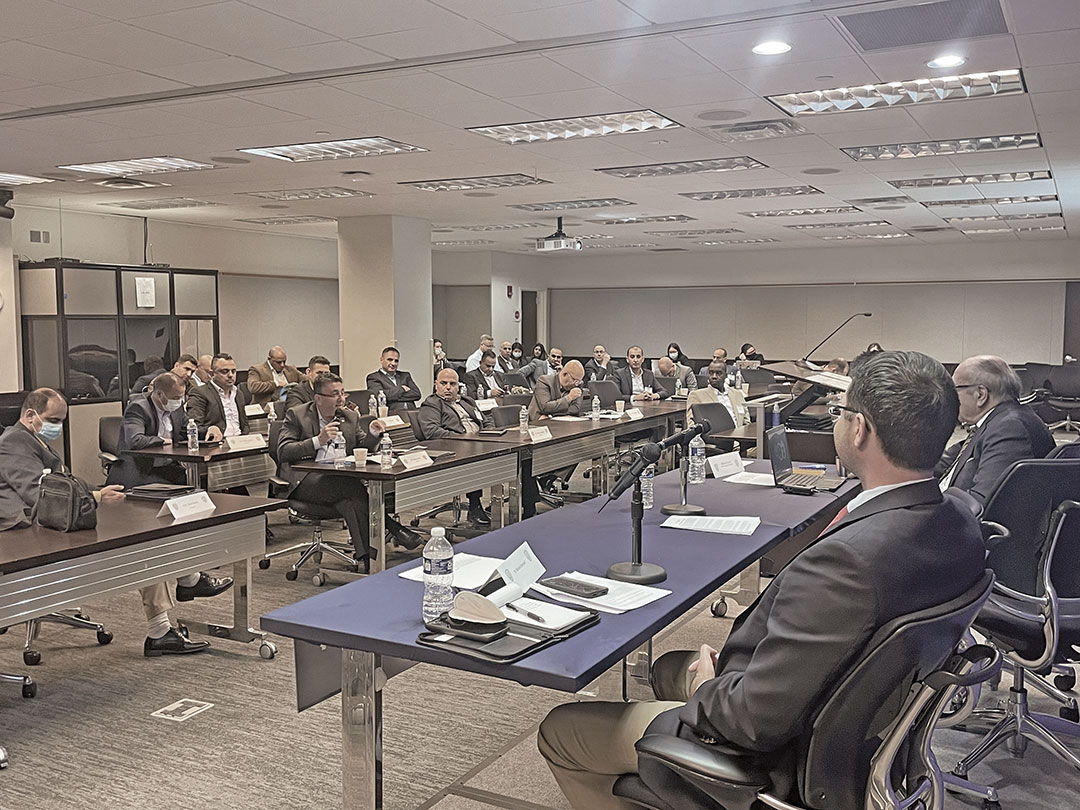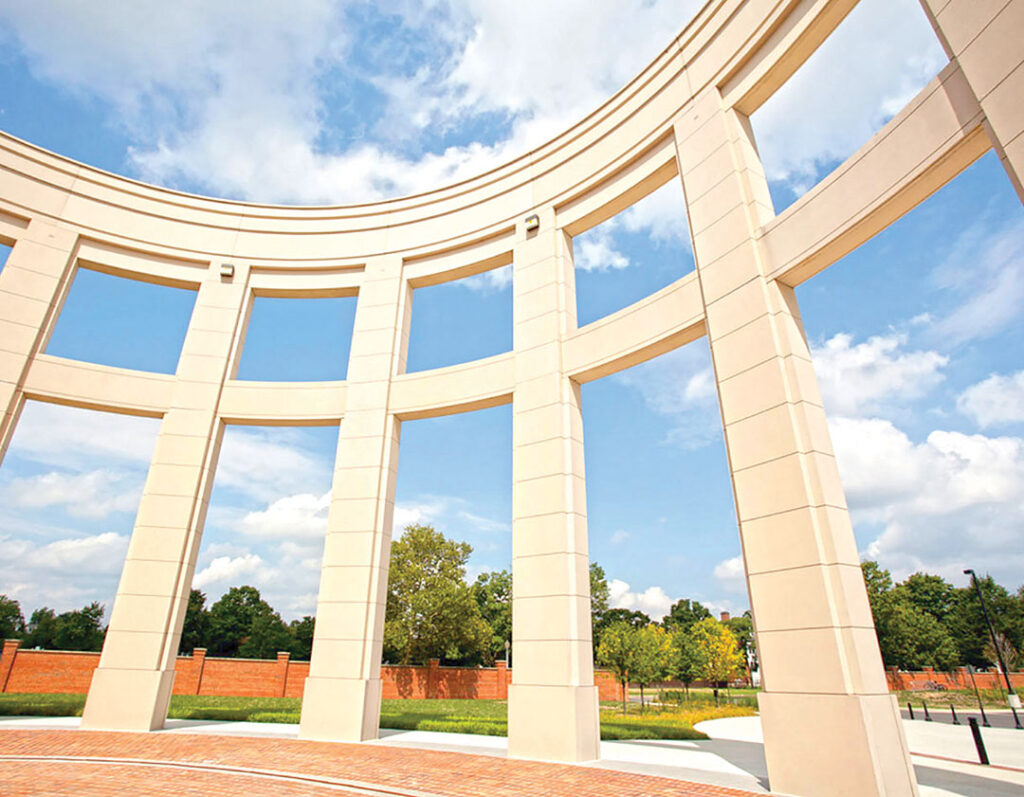UNIPATH STAFF
A cademic institutions rely on experience-sharing and inter-institutional cooperation to develop solid programs and professional staff with experience in nation-building. Military academies are perhaps in even greater need of inter-institutional engagement because of the many changes in the field of military sciences. Indeed, these institutions are making great efforts to keep pace with new tactics, most recently asymmetric warfare, the introduction of aerial drones to the battlespace, and the emergence of new fronts, namely, cyberspace. Consequently, we are seeing allied and friendly nations establish exchange programs, sending students to and receiving students from partner nations. The Fouad Chehab Command and Staff College in Lebanon is no different from other colleges and universities around the world in that regard and maintains close relationships with the United States, Britain and France. Among the most important of these programs is the exchange program with the U.S. National Defense University’s Near East South Asia Center for Strategic Studies (NESA), which welcomes Lebanese cadets continuously. Unipath met with then-Fouad Chehab Command and Staff College Commander Brig. Gen. Hassan Jouni, who discussed the college and its programs.

Unipath: What are the objectives of the Staff College delegation’s visit to the United States?
Brig. Gen. Jouni: The staff course officers’ trip to the United States, specifically to the National Defense University (NDU), is designed to introduce these officers to contemporary strategic issues by presenting a set of lectures as part of a workshop organized by NESA. They include contemporary strategic and geopolitical topics presented by a number of lecturers and university professors from different countries, with diverse backgrounds and knowledge to approach these topics from multiple perspectives. In doing so, we expand the knowledge horizons of staff course officers, especially in major strategic topics, including explaining American foreign policy and its most important pillars, particularly in the current presidential era, and presenting key transformations that have taken place, especially in the Middle East. An exchange of cultures and knowledge also takes place among the lecturers and officers during discussions and interactions that occur as part of the lectures.
Unipath: Is this the first visit to NESA for the Lebanese staff college?
Brig. Gen. Jouni: No, about 10 years ago, visits were arranged for the officers of successive staff courses in coordination with the NESA Center for Strategic Studies and the U.S. Defense Cooperation Office in Beirut, and they have taken place since then, with the exception of the last two years because of the coronavirus pand
Unipath: How would you rate the lectures given by NESA professors?
Brig. Gen. Jouni: These are, of course, valuable lectures at the level of information, theses and theories, but their significance lies in the diversity of topics and in the diversity of the lecturers themselves — their intellectual and political backgrounds — which leads to an objective presentation of different topics. On the other hand, the focus on the Middle East benefits officers by broadening their horizons in terms of their understanding of international policies towards the region, especially U.S. policy.

Unipath: Can you talk about cooperation between Lebanon and the United States?
Brig. Gen. Jouni: What I can talk about is the academic cooperation between Fouad Chehab Command and Staff College and the U.S. National Defense University via our collaboration with the NESA Center, which has been an active and useful collaboration in the context of developing the culture of officers in the fields of strategy and geopolitics. Additionally, a U.S. consultant works with the College’s leadership to help develop its education curricula. He is an expert in the field of strategic planning and coordinates academic cooperation between the College and U.S. military academic institutions.
Unipath: Does the Lebanese staff college have professors from other countries?
Brig. Gen. Jouni: The college sometimes hosts professors from friendly countries who are academics or retired officers, but only does so on an ad hoc basis. There are no permanent foreign professors. However, it should be noted that the college also has a French officer assigned to it by the French Army via the French Embassy in Lebanon. He is a military expert tasked with coordinating between the Staff College’s leadership and the War College in Paris and with coordinating some joint exercises and exchange programs.
Unipath: Could you describe the Lebanese Staff College’s focus?
Brig. Gen. Jouni: The Staff Course curriculum at the college aims to develop commanding officers and prepare them to lead large military units or work as members of staffs. The curriculum includes all the techniques and mechanisms of military decision-making at the tactical and operational level needed by a commander to plan and assess the situation at all stages and levels so that the appropriate decision can be made to solve any tactical or operational issue, address security and counterterrorism challenges, or manage major crises. The program also includes the planning of tactical and operational exercises brought to life by a virtual reality system to simulate maneuvers planned by cadets. Furthermore, several subjects fall within our “command and staff” curriculum, including critical thinking, communication, human resource management, international humanitarian law, international human rights law and civil-military cooperation. At the strategic level, given that this course is the highest in the Lebanese Armed Forces, it is necessary to approach the concepts of strategy and geopolitics through a program of lectures, seminars and related materials. In addition to all this, cadets are required to prepare scientific research on a strategic topic as a mandatory condition for acquiring the title of staff officer.
Unipath: How do you attract students from friendly nations?
Brig. Gen. Jouni: Army Command offers friendly militaries, especially those that host Lebanese officers in their military colleges, the opportunity for one or more of their officers to observe the staff course within the context of experience, knowledge and cultural exchange between friendly armies. As a result, Fouad Chehab Command and Staff College hosts between 10 and 15 officers from friendly Arab and foreign armies, provided that they are fluent in the Arabic language, since instruction at the college is carried out in Arabic.

